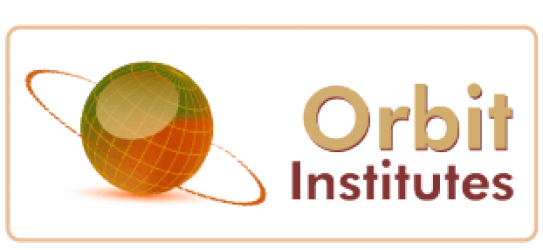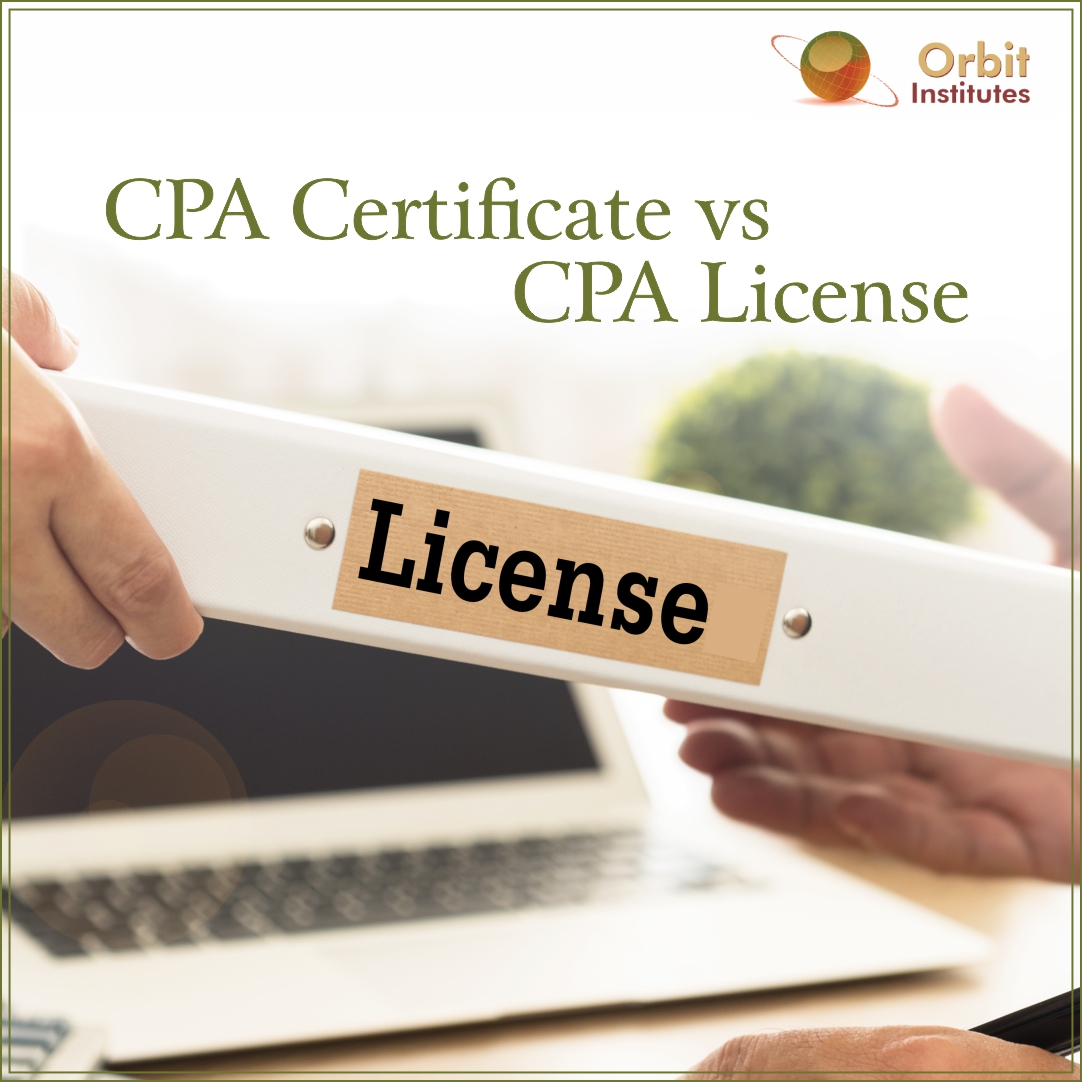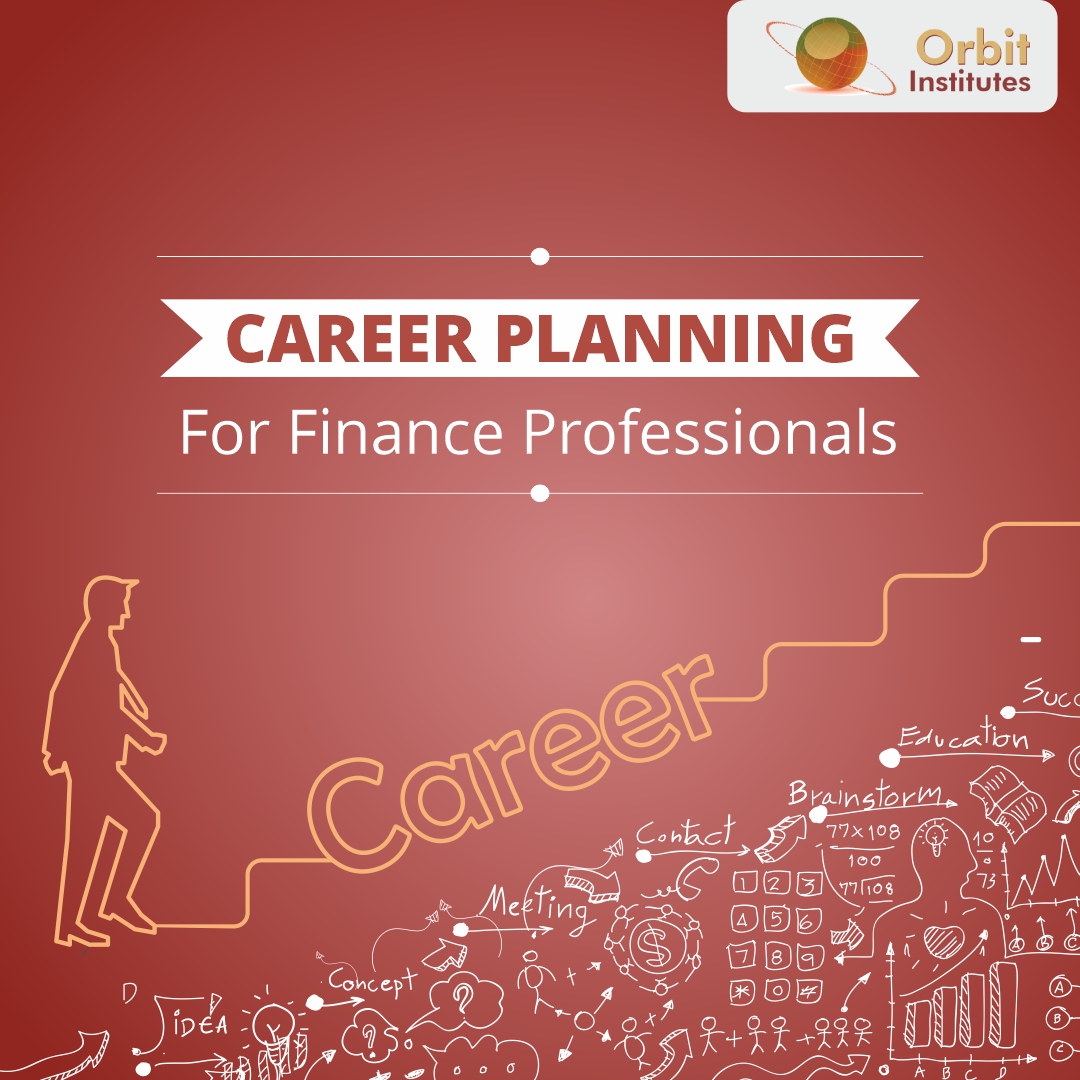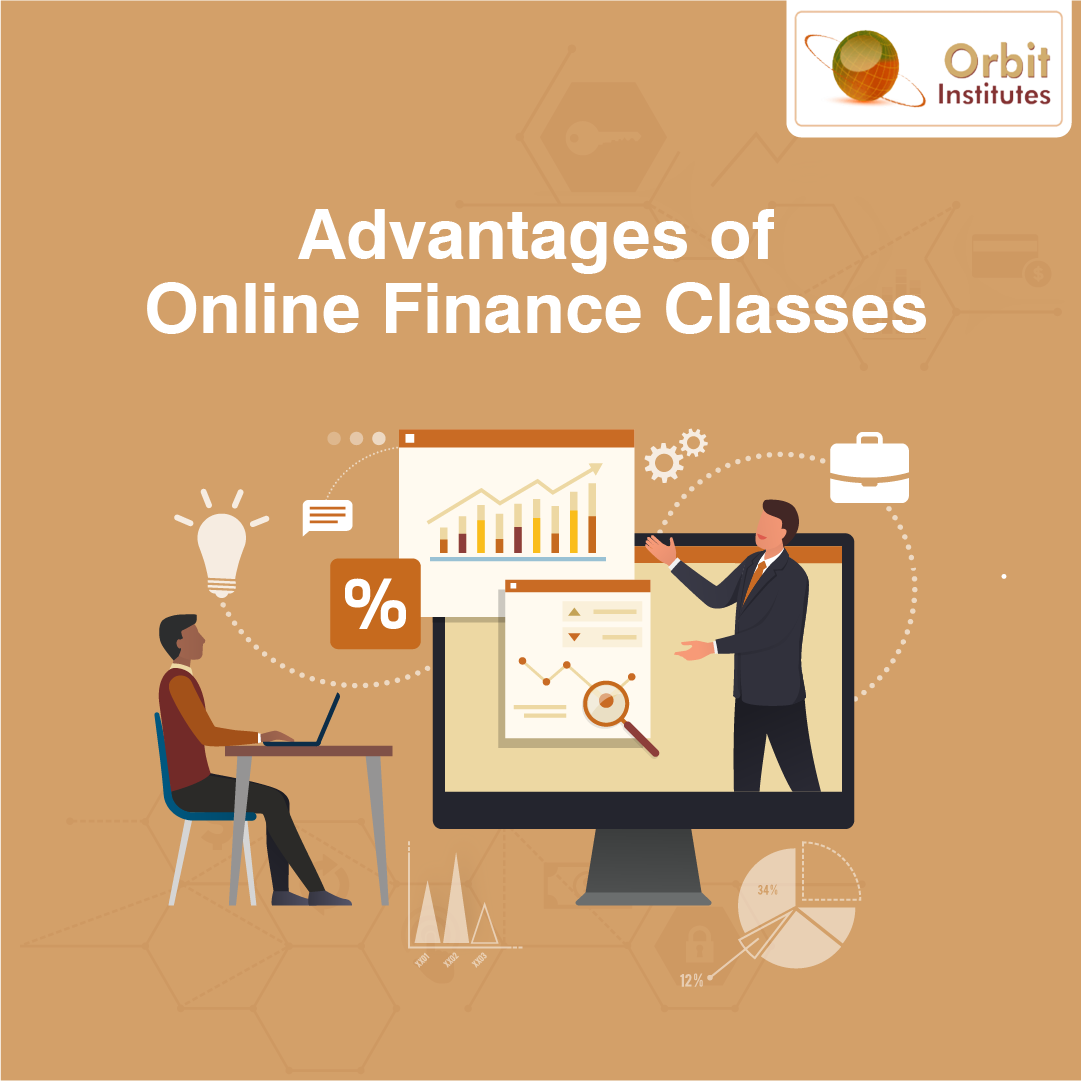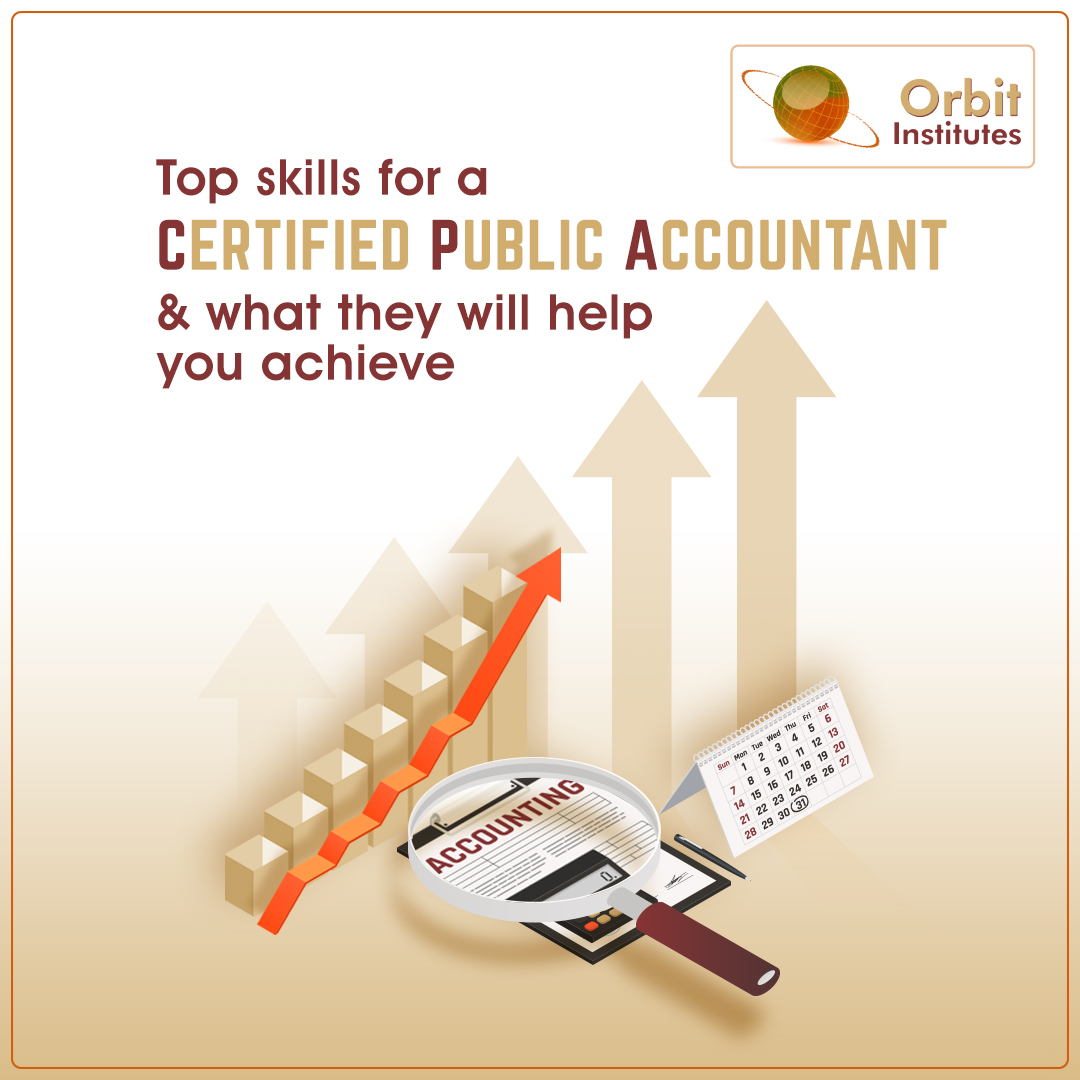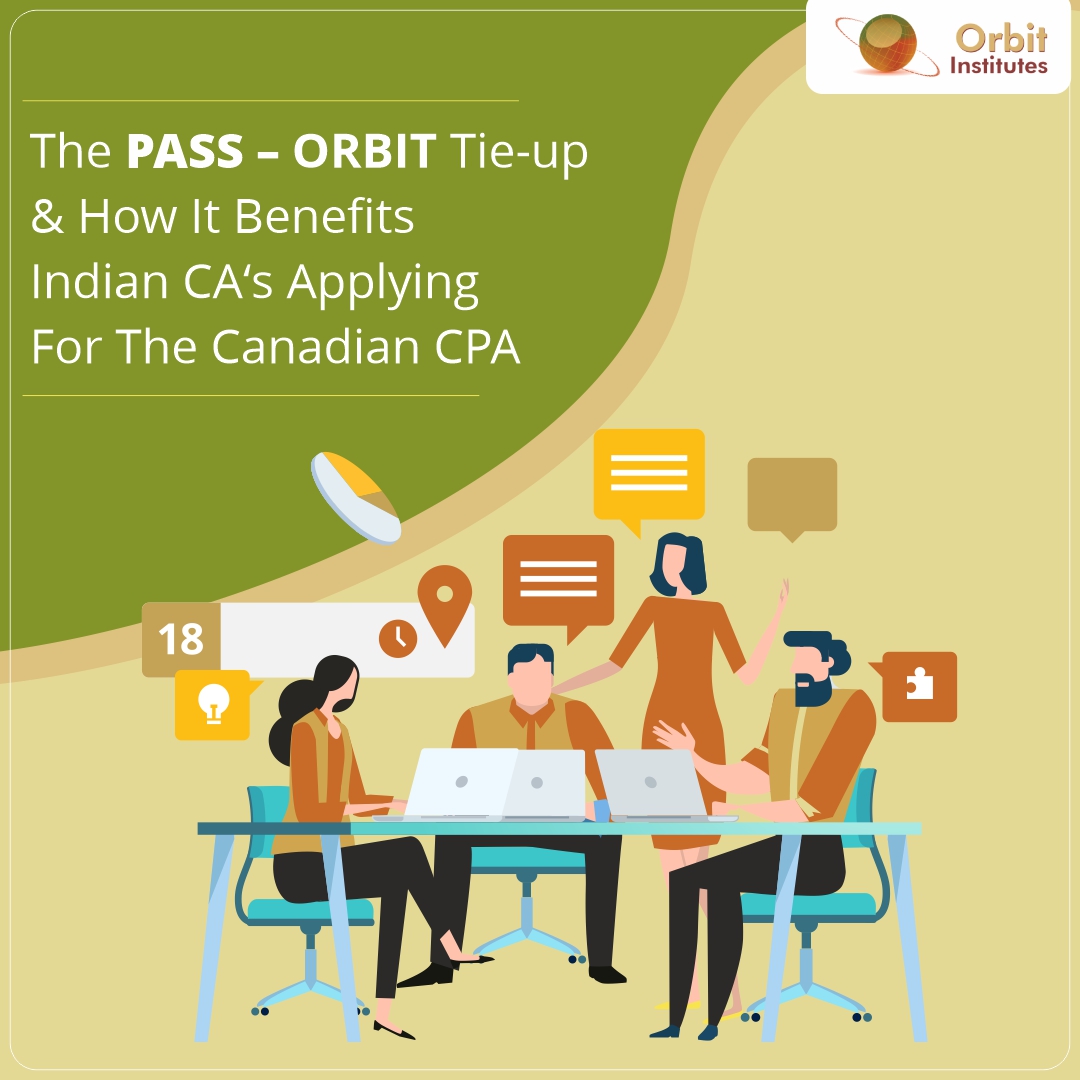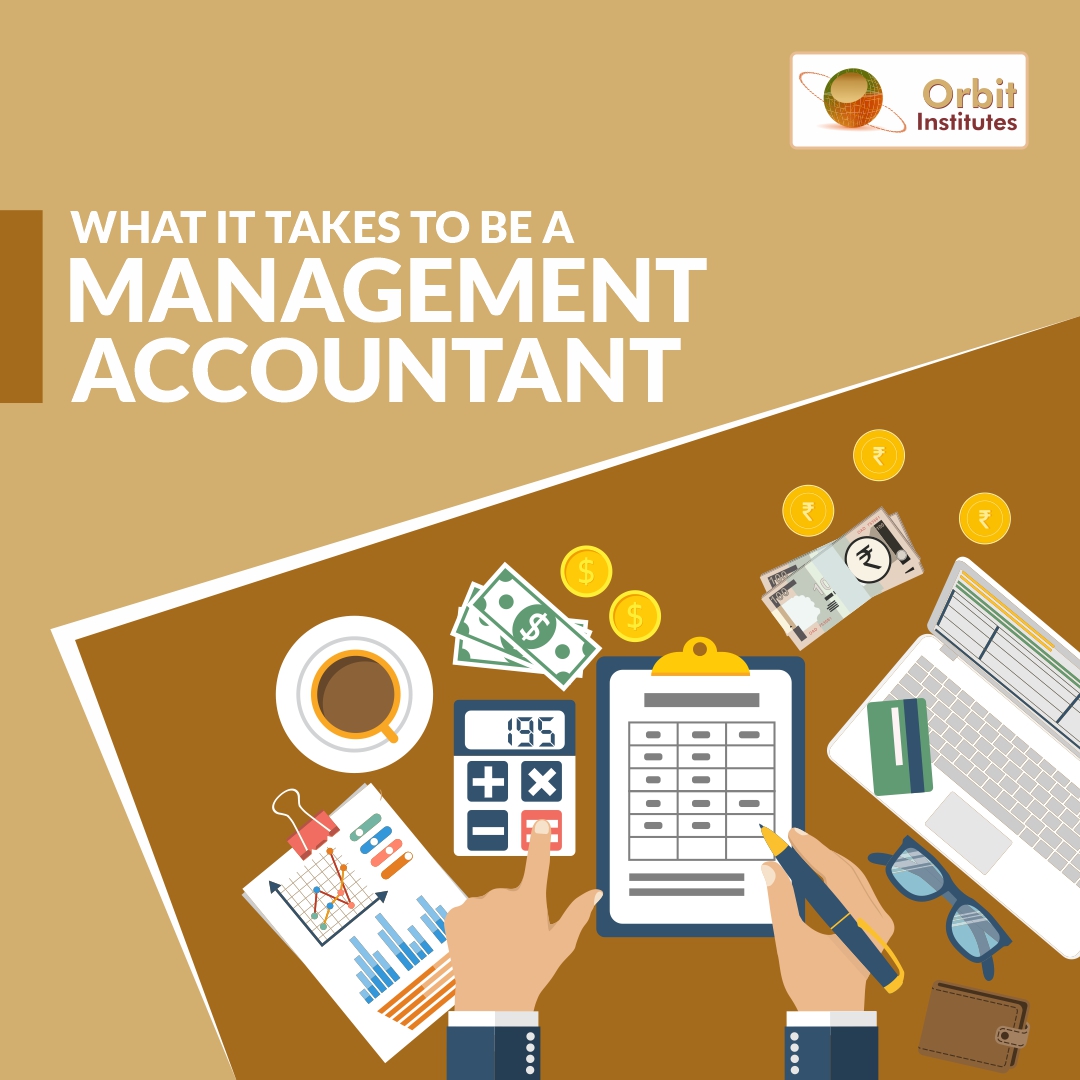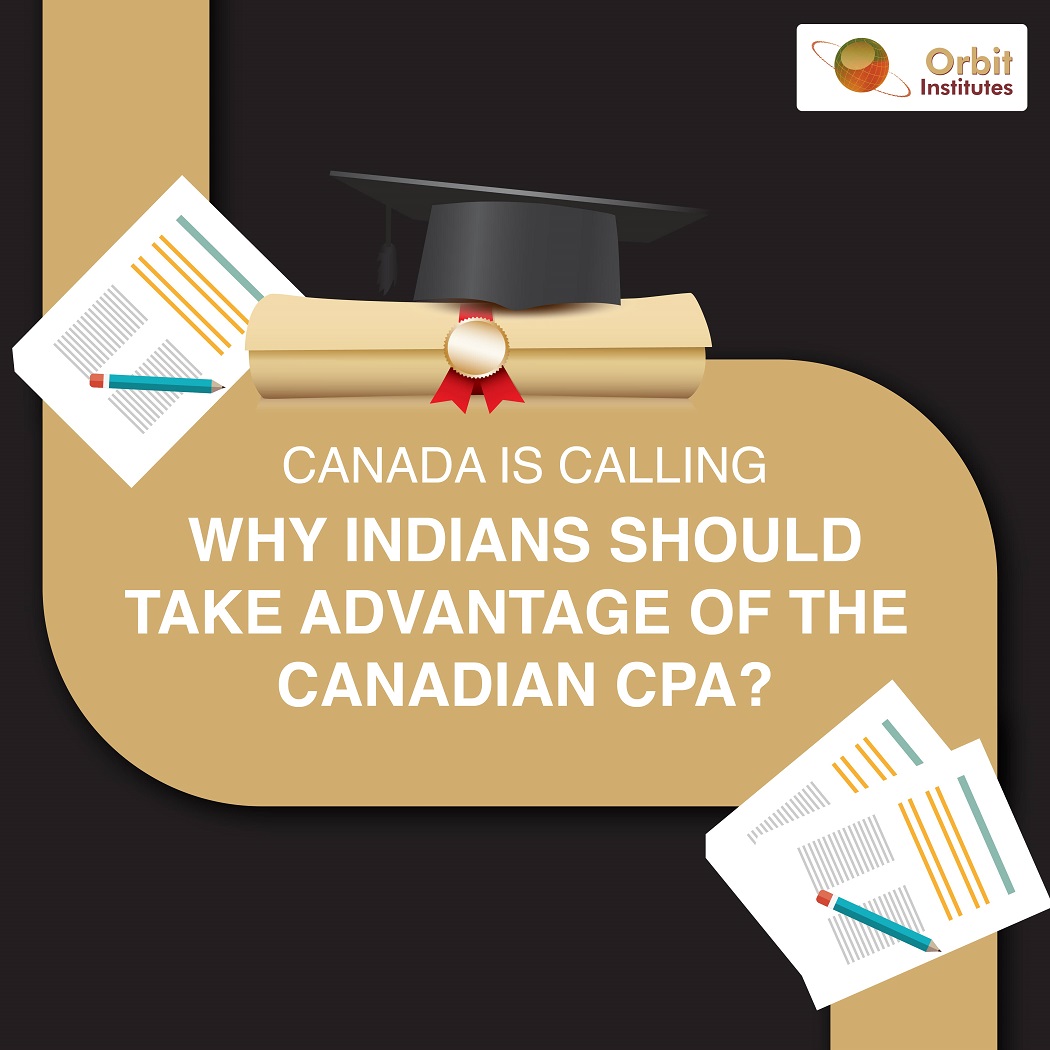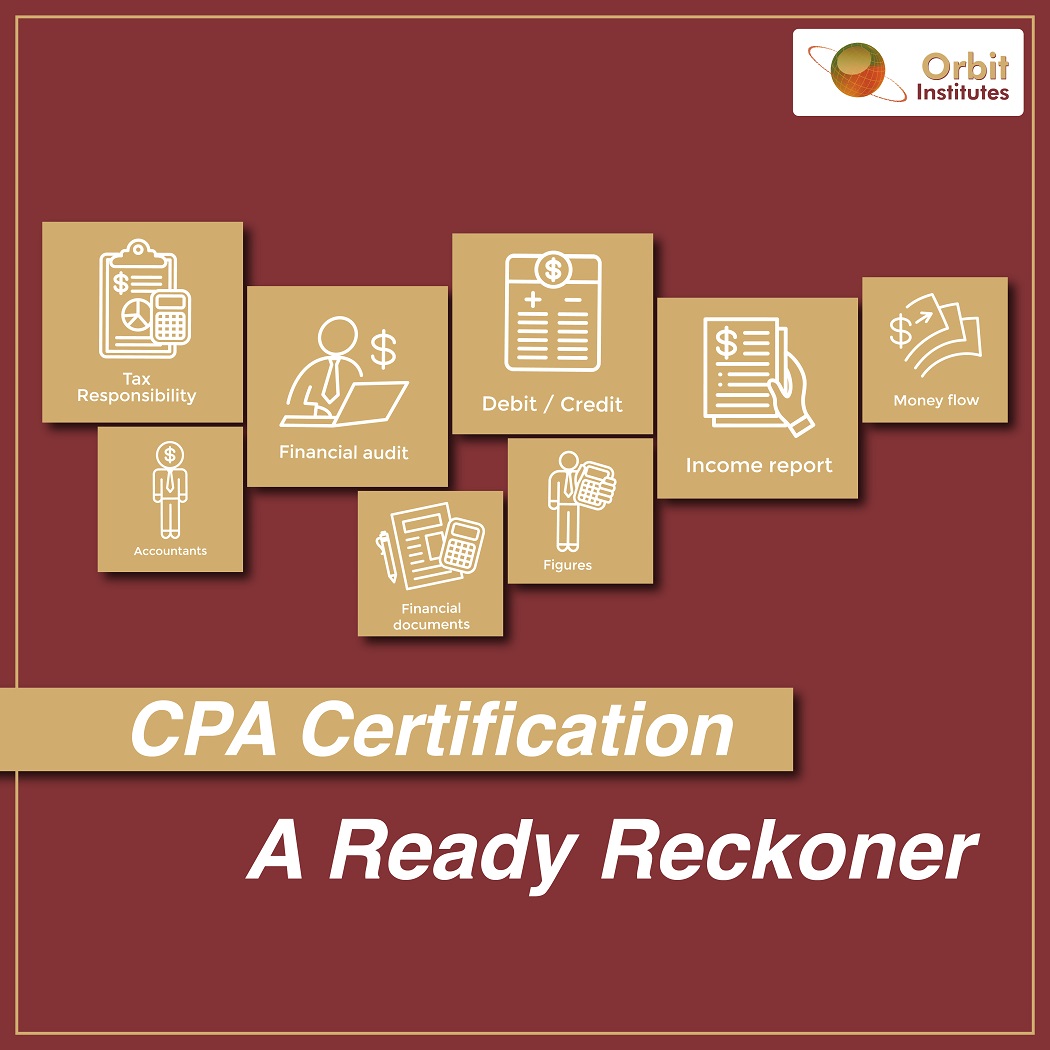The CPA or Certified Public Accountant is a professional certification that is considered the ‘gold standard’ of certifications in the finance world. Obviously, it does not come easy. After studying for over 100 hours and completing an exam in 4 parts, it is disheartening for students to hear that they are not licensed CPAs. Why does this happen? In this article, we at Orbit Institutes look into the difference between a CPA certificate and a CPA license.
Who Certifies a CPA?
The CPA is offered by multiple countries across the globe. However, in this article we will refer to the US CPA which is globally recognised and offered by every state in USA.
The US CPA exam is administered by the American Institute of Certified Public Accountants (AICPA). Eligibility varies across each state and though a CPA is licensed only in the state they have applied from, multiple reciprocity laws allow them to practice in other states and countries as well.
CPA Certification vs. CPA License
The reason these two concepts exist is because each state in the USA follows their own -system of declaring a person a CPA. Largely states follow either a one-tiered system or a two-tiered system.
In a one-tiered state the terms ‘CPA certificate’ and ‘CPA license’ are used interchangeably. Meaning that a student becomes a licensed CPA the moment they clear the CPA exam.
In a two-tiered state however, a student must not only clear the CPA exam, s/he must also clear additional work-experience, ethics or educational requirements. When students complete the CPA exam, they are given a CPA certification. This document signifies that one has completed the first step to becoming a full-fledged CPA. These certificate holders can only work under the supervision of an already licensed CPA and cannot publically advertise themselves as CPAs. Once they complete the states work requirements they are given their CPA license, which allows them to work unsupervised and run their own CPA firm if they wish.
| CPA Certification | CPA License |
| No additional requirements | Could need additional work-experience, ethics or educational requirements |
| Cannot use the CPA title on any official or legal reports | Legally recognises a person as a CPA, allowing them to sign even tax returns and audit reports |
| Cannot own a CPA firm | Can own or be a partner in a CPA firm |
| Requires a small annual renewal fee | Requires a significant annual renewal fee |
CPA Eligibility for Foreign Students
The CPA eligibility varies for non- US citizens across each state. For Indians the minimum qualification is generally 15 years of education which could include B.Com/ CA/CS/ICWA/ M.Com or MBA (Finance). Even the college or university you attended needs to be recognised by the AICPA.
While some states also require 1-2 years of fresh work experience under a licensed CPA, there are others which will grant a certificate on the basis of past work experience evidence. Similarly, some states require applicants to be residents of USA while others do not.
Test Centers for Foreign Students
Foreign students can attempt the CPA from a number of other countries. However, in order to do so they first need to select a participating US jurisdiction and contact its’ Board of Accountancy. Once the student has completed the formalities s/he will receive a Notice to Schedule (NTS). This gives them permission to take the exam at an International location.
Indian students have a lot to cheer about in the year 2021. Earlier, in order to take the CPA, Indians were required to travel to either the US or the Middle East. However, due to the pandemic, Indians will now be able to take the CPA exam from multiple cities within the country.
As you can see, becoming a full-fledged CPA is no easy feat. Depending on your future plans, you will need to decide if you wish to get only the CPA certification or the CPA license as well. However, before you get overwhelmed by the process, remember that being a CPA brings with it a great degree of prestige & respect. It opens the doors of opportunity as CPAs are not limited to any one industry or job function. And most importantly, you can rely on Orbit Institutes to guide you on the best way to acquire your CPA.
